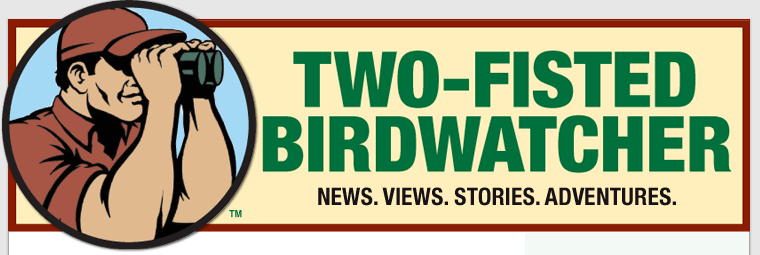Somebody famous said, “I think we consider too much the good luck of the early bird and not enough the bad luck of the early worm.” Who said it? We’ll get to that in a minute.
But the guy’s right. The whole “early bird” thing is a piece of popular wisdom that needs questioning. They always tell you to get going early. The nature experts, the birding advisors, the birds themselves.
They want you to drag your lazy butt out at dawn. Or sooner. Wait too long and you lose. This might be true if you’re a bird. But, as the famous guy suggested, what if you’re a worm?
I’ve done it both ways—early and not. One spring migration I scored thirty-some early sightings in the cold forests north of Chicago. Then came home at noon and found two male Scarlet Tanagers outside my bedroom window.
They were in my neighbor’s tree, along with Blackburnian, Wilson’s and Black-and-White Warblers. I didn’t need binoculars. There was the call of a Northern Oriole, too. And I also heard what was probably a Rose-breasted Grosbeak.
Okay, these are not exotic birds that would ruffle the life lists of two-fisted birdwatchers who hike the Andes and Amazon. But they make a point. Birds are where you find them. And when.
They’re in our forests at dawn, and they’re in our neighbor’s trees at noon. If you’re lucky. Which brings us back to the worm.
A worm that gets busy at dawn might be eaten by a bird using the same early-to-rise ethic. It works for the bird. Doesn’t for the worm. All a matter of perspective. Makes you question the folk wisdom about rising early. Always a good idea to question folk wisdom, and everything else.
The author of the early worm quotation was our only four-term president. A guy who had a world-wide depression to deal with and also a life-and-death challenge called World War Two. Franklin Delano Roosevelt.
He knew about luck, good and bad. I guess he figured that it’s not always something you influence with an alarm clock. Sleep late; the birds will be out there. And so will the worms that didn’t get eaten.
